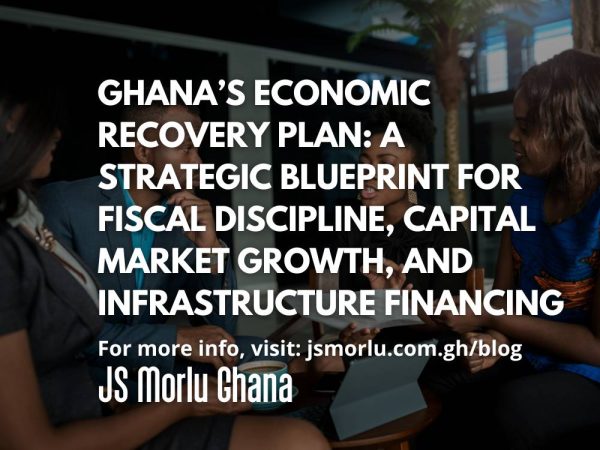At the 2025 Ghana CEO Summit held at the Kempinski Hotel in Accra, the government unveiled an eight-pillar strategy aimed at restoring economic stability, strengthening investor confidence, and promoting sustainable development.
The plan prioritizes fiscal discipline, capital market access, public investment reform, and local government financing. For businesses, development institutions, and public sector stakeholders, these measures offer a roadmap for re-engaging with Ghana’s economy through transparent and growth-oriented frameworks.

1. Completing the IMF Programme with Discipline
Ghana remains committed to completing the IMF Extended Credit Facility programme, with the fourth review expected by June 2025 and a full transition planned by 2026. A post-programme Policy Support Instrument will be adopted to sustain fiscal responsibility without additional borrowing.
This direction signals a renewed commitment to disciplined economic management, enhancing the stability required for investment and long-term planning.
2. Reopening Domestic and International Capital Markets
Efforts are underway to reopen domestic and international capital markets in collaboration with the IMF, Ghana Stock Exchange, and local financial institutions. The focus will be on issuing bonds to support commercially viable, self-financing projects by Ministries, Departments and Agencies (MDAs), Metropolitan, Municipal and District Assemblies (MMDAs), and State-Owned Enterprises (SOEs).
This is aimed at restoring investor confidence while ensuring that public borrowing contributes directly to sustainable development.

3. Strengthening Sovereign Funds and Local Government Financing
To strengthen local-level development, the plan proposes enabling MMDAs to issue municipal and infrastructure bonds backed by a portion of their District Assembly Common Fund. These funds will be directed toward essential infrastructure such as roads, schools, water systems, and local industrial projects.
JS Morlu Ghana supports this initiative and provides technical assistance to municipalities in structuring bankable projects and accessing funding through transparent, accountable processes.
4. Clearing Verified Arrears and Rationalising Public Investments
An ongoing audit by the Auditor-General is verifying government arrears. Valid claims will be cleared transparently. Future public investment decisions will be guided by national priorities, available resources, and alignment with development goals.
This approach aims to build trust in government spending and reinforce fiscal credibility.

5. Accelerating Public Financial Management Reforms
Key reforms are being reactivated to enhance fiscal discipline, including the Treasury Single Account (TSA), integrated tax administration systems, and real-time budgeting tools. These measures are expected to reduce inefficiencies, control expenditure, and improve overall public finance management.
6. Revitalising Exports Through Ghana Exim Bank
The Ghana Exim Bank will be repositioned to support non-traditional exports, agro-processing, light manufacturing, and SMEs. This initiative is intended to increase foreign exchange earnings and promote inclusive economic growth.
7. Building Ghana into a Regional Hub for Trade and Investment
Ghana seeks to strengthen its role as a West African trade and logistics hub by investing in strategic sectors such as port infrastructure, digital technology, finance, healthcare, and education. These efforts complement the African Continental Free Trade Area (AfCFTA) and aim to make the country a preferred entry point for regional commerce.

8. Resuming Infrastructure Development to Stimulate Growth
Strategic infrastructure projects will be resumed through approaches such as public-private partnerships (PPPs), the Big Push initiative, and collaborations with development partners. Priority sectors include energy, transportation, water, housing, and urban development.
Conclusion: Advancing Accountable Growth and Investment Readiness
Ghana’s economic recovery strategy outlines a clear and practical framework grounded in transparency, fiscal responsibility, and market re-engagement. For development partners, investors, and public sector institutions, it presents renewed opportunities for collaboration on sustainable growth initiatives.
At JS Morlu Ghana, we are ready to support MDAs, SOEs, and MMDAs in project preparation, investment planning, debt sustainability analysis, and public financial management. We remain committed to delivering expert guidance as institutions navigate this next phase of Ghana’s economic development.
